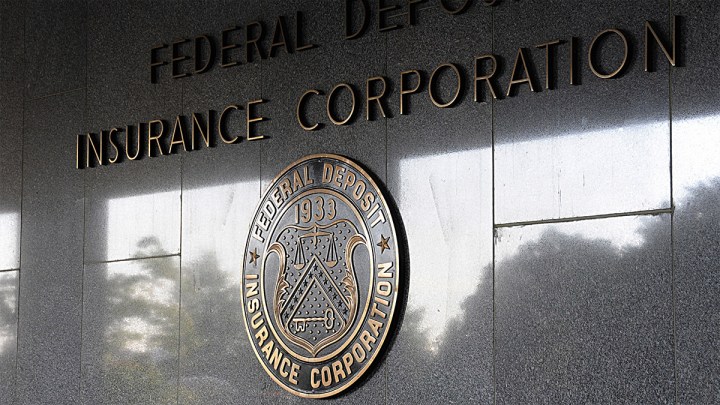
Who’s responsible for paying the failed banks’ depositors?
Who’s responsible for paying the failed banks’ depositors?

The federal government has guaranteed that depositors with money at Silicon Valley Bank and Signature Bank will have access to their money — even those with deposits above $250,000, which are not usually insured.
The government also said the taxpayers will bear no losses for those depositors being made whole. Instead, the money’s coming from the Deposit Insurance Fund, which is part of the Federal Deposit Insurance Corporation, or FDIC.
Any bank insured by the FDIC has to pay quarterly premiums to the agency.
“I guess it is life insurance — it’s basically life insurance for a bank,” said Dan Giedeman, an economics professor at Grand Valley State University.
And just like with life insurance, if the bank is healthy, “We’ll charge them a much lower premium than if somebody maybe behaves recklessly,” Giedeman said.
Those premiums are the main source of revenue for the FDIC’s Deposit Insurance Fund. At the end of 2022, it had over $128 billion in it.
It’s unclear at the moment how much paying the depositors of the failed banks will set the fund back, and existing banks are required by law to make up the difference.
“When FDIC pays out, it has by statute a mandate to go back and have an extraordinary assessment on the living banks to recoup what it paid,” said Anna Gelpern, a law and finance professor at Georgetown and a fellow at the Peterson Institute for International Economics.
Gelpern said those assessments became more comprehensive following the 2008 financial crisis. The costs of them could trickle down to regular consumers — anyone who banks.
“Is it going to cost you? Probably,” according to William Chittenden, a finance professor at Texas State University. “Either you would earn a little bit less on your deposit. Or you might pay just a hair more on your loan.”
Those costs are part of what Georgetown’s Anna Gelpern says comes with the social compact of operating a banking system.
There’s a lot happening in the world. Through it all, Marketplace is here for you.
You rely on Marketplace to break down the world’s events and tell you how it affects you in a fact-based, approachable way. We rely on your financial support to keep making that possible.
Your donation today powers the independent journalism that you rely on. For just $5/month, you can help sustain Marketplace so we can keep reporting on the things that matter to you.


















